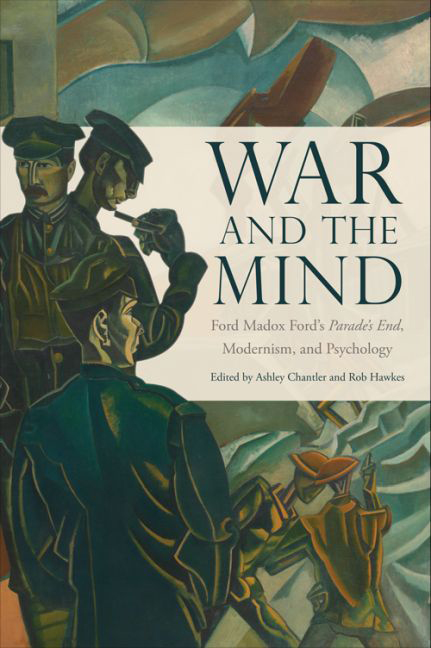Book contents
- Frontmatter
- Contents
- Acknowledgements
- Introduction
- 1 ‘Sex ferocity’ and ‘the sadic lusts of certain novelists’: Sexuality, Sadomasochism, and Suppression in Parade's End
- 2 Freud Madox Ford: Impressionism, Psychoanalytic Trauma Theory, and Ford's Wartime Writing
- 3 Empathy, Trauma, and the Space of War in Parade's End
- 4 Fellow Feeling in Ford's Last Post: Modernist Empathy and the Eighteenth-Century Man
- 5 The Self-Analysis of Christopher Tietjens
- 6 Composing the War and the Mind; Composing Parade's End
- 7 The Work of Sleep: Insomnia and Discipline in Ford and Sassoon
- 8 Representing Shell Shock: A Return to Ford and Rebecca West
- 9 ‘I hate soldiering’: Ford, May Sinclair, and War Heroism
- 10 Peace of Mind in Parade's End
- Notes on Contributors
- Bibliography
- Index
7 - The Work of Sleep: Insomnia and Discipline in Ford and Sassoon
Published online by Cambridge University Press: 15 September 2017
- Frontmatter
- Contents
- Acknowledgements
- Introduction
- 1 ‘Sex ferocity’ and ‘the sadic lusts of certain novelists’: Sexuality, Sadomasochism, and Suppression in Parade's End
- 2 Freud Madox Ford: Impressionism, Psychoanalytic Trauma Theory, and Ford's Wartime Writing
- 3 Empathy, Trauma, and the Space of War in Parade's End
- 4 Fellow Feeling in Ford's Last Post: Modernist Empathy and the Eighteenth-Century Man
- 5 The Self-Analysis of Christopher Tietjens
- 6 Composing the War and the Mind; Composing Parade's End
- 7 The Work of Sleep: Insomnia and Discipline in Ford and Sassoon
- 8 Representing Shell Shock: A Return to Ford and Rebecca West
- 9 ‘I hate soldiering’: Ford, May Sinclair, and War Heroism
- 10 Peace of Mind in Parade's End
- Notes on Contributors
- Bibliography
- Index
Summary
While contemplating the various hierarchical powers within the military, Christopher Tietjens comes to the conclusion that for an army to run effectively, the bodies of its members, no matter their rank, must be completely submissive to military authority. In A Man Could Stand Up –, Tietjens argues that this submission to discipline is especially significant in the case of any physical or mental illness: ‘the moment [the Colonel] becomes sick the fact that his body is property of His Majesty the King, comes forcibly into operation’. He concludes: ‘Sick bodies are not only of no use to the King, but are enormously detrimental to the army that has to cart them about.’ Though uncomfortable with the necessity of submitting one's body to the discipline of the military, Tietjens accepts this condition as ‘very reasonable and proper’ (p. 107) and regards the care for one's well being as ‘a duty to your children. And the King’ (p. 150). George Sherston, the central character of Memoirs of an Infantry Officer (1930) by Siegfried Sassoon, expresses a similar belief, that as a soldier he ‘could no longer call [his] life [his] own’. Both characters share a fundamental and problematised sense of accountability, not to themselves, but to their society, their comrades and superiors, and their king. They display, and often resist, this accountability by sometimes offering and sometimes withholding their bodies for use in the war. Their habits and failures of sleep are one of the means through which they express their ambivalence towards subjection and discipline. For instance, Tietjens, at times of stress, chooses not to sleep despite both exhaustion and the opportunity for rest, and Sherston describes numerous occasions when he cannot sleep given his physical and emotional circumstances. As this chapter will demonstrate, sleep signifies more than just a biological function in these novels: the failure or refusal to sleep acts as a point of resistance against becoming a disciplined subject.
- Type
- Chapter
- Information
- War and the MindFord Madox Ford's Parade's End, Modernism, and Psychology, pp. 112 - 126Publisher: Edinburgh University PressPrint publication year: 2015

